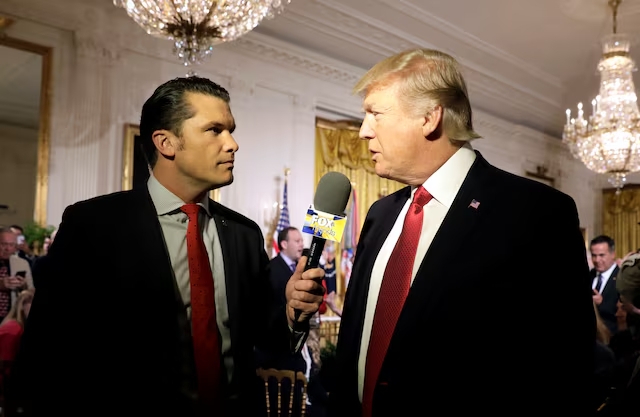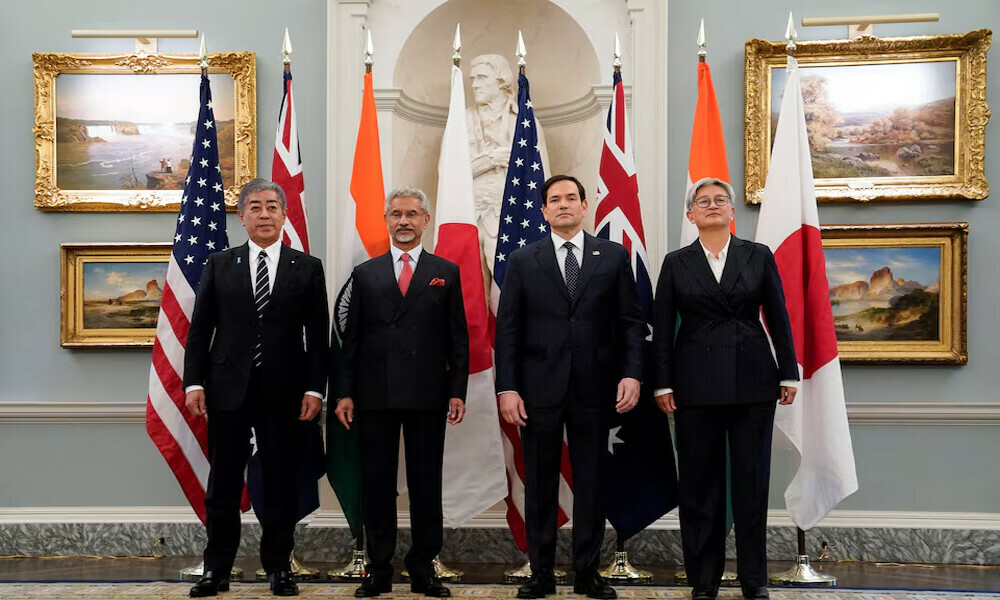
Richard Javad Heydarian, Professorial Chairholder in Geopolitics, Polytechnic University of the Philippines
Mar 14, 2025
The Trump administration's clash with Ukraine has raised doubts about America's strategic reliability, prompting concerns among European and Asian allies about a potential shift in global order under a second Trump presidency.

Brian Wong, Assistant Professor in Philosophy and Fellow at Centre on Contemporary China and the World, HKU and Rhodes Scholar
Mar 04, 2025
Peter Hegseth’s inability to name an ASEAN country underscores the Trump administration’s broader indifference to Southeast Asia, favoring trade protectionism, military burden-shifting, and transactional diplomacy over sustained regional engagement.

Ghulam Ali, Deputy Director, Hong Kong Research Center for Asian Studies
Mar 04, 2025
The Asia-Pacific region began to exhibit signs of easing major geopolitical tensions in late 2024, but has started to heat up again following President Trump’s return to power in the White House. During the ‘easing’ period, although low-level disputes persisted in the vast region, in the South China Sea, and in cross-strait relations, the risk of a conflict involving regional heavyweights was not imminent.
Liu Chang, Assistant Research Fellow, Department for American Studies, CIIS
Apr 23, 2024
America is holding ASEAN countries back from a central role in its Indo-Pacific Strategy, but their self-confidence is growing. It’s not lost on anyone that Southeast Asia’s strategic position has not changed in the minds of U.S. decision-makers. Meanwhile, China offers welcome alternatives.
Brian Wong, Assistant Professor in Philosophy and Fellow at Centre on Contemporary China and the World, HKU and Rhodes Scholar
Apr 19, 2024
ASEAN’s future seems bright, and both the U.S. and China want to court the region’s nations into partnerships. Neither side holds a clear advantage, though that may change after the U.S. election this year.
Brian Wong, Assistant Professor in Philosophy and Fellow at Centre on Contemporary China and the World, HKU and Rhodes Scholar
Kevin Zongzhe Li, Master in Public Policy Candidate at Harvard Kennedy School, Research Assistant at Harvard’s Belfer Center for Science and International Affairs
Nov 27, 2023
Southeast Asia is primed for major growth across multiple fronts in the near future - and it might be the perfect staging ground for U.S.-China cooperation, if the cross-Pacific powers are willing to set aside their differences.
Richard Javad Heydarian, Professorial Chairholder in Geopolitics, Polytechnic University of the Philippines
Oct 20, 2023
Indonesia is one of the world’s most populous nations, and is rising in regional and international influence. Taking charge as ASEAN chairman amid a contentious time among member states is Indonesia’s chance to prove its ability to lead Southeast Asia and the world in the coming decades.
Chen Jimin, Guest Researcher, Center for Peace and Development Studies, China Association for International Friendly Contact
Jul 27, 2023
America’s Indo-Pacific Strategy is not only at odds with the regional vision to which ASIAN is committed but it affects the region’s development environment. As a result, ASEAN will steer a middle course to protect its central role.
Richard Javad Heydarian, Professorial Chairholder in Geopolitics, Polytechnic University of the Philippines
Jun 29, 2023
Amid rising tensions between the United States and China in Asian waters, ASEAN nations, led by Indonesia, are intensifying their efforts to manage and diffuse the military tensions. Initiatives such as the Multilateral Naval Exercise Komodo (MNEK) and joint naval drills aim to engage both superpowers and promote dialogue. ASEAN states are strengthening their defensive positions while pursuing diplomatic engagement to ensure regional stability.
Lili Yan Ing, Secretary General of the International Economic Association
Jun 19, 2023
The recent G7 summit in Hiroshima and the subsequent G20 tourism meeting in Kashmir underscored the stark contrast between the two groups’ rhetoric. While